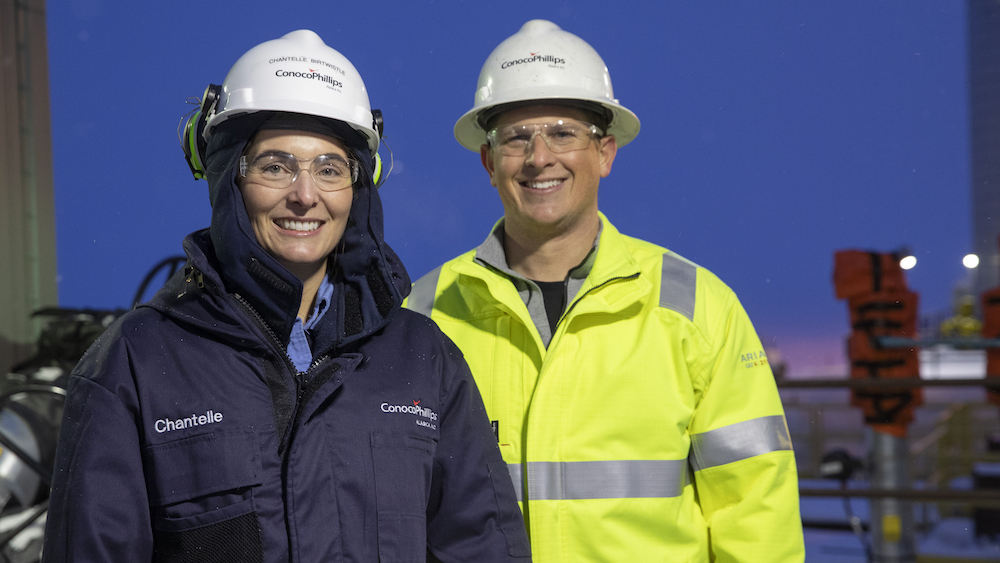| | | | | | | Presented By ConocoPhillips | | | | Axios Generate | | By Ben Geman and Andrew Freedman · Aug 09, 2022 | | ☕ Good morning! Today's newsletter, edited by Mickey Meece, has a Smart Brevity count of 1,092 words, 4.5 minutes. 📬 Did a friend send you this newsletter? Welcome, please sign up. 🎶 With a h/t to Albumism, this week in 2000 De La Soul released "Art Official Intelligence: Mosaic Thump," which provides today's intro tune... | | | | | | 1 big thing: Scorching summer numbers |  Data: Hersbach, et. al., 2019, " ERA5 monthly averaged data on single levels from 1959 to present"; Map: Erin Davis/Axios Visuals Unparalleled heat waves, drought, wildfires and deadly deluges made this July one of the three hottest on record worldwide, according to the Copernicus Climate Change Service, Andrew writes. Why it matters: The report released yesterday is the first indication of where July stands in the annals of modern climate records, and it shows that the influence of human-caused global warming is having a profound impact on summer temperatures. - Recent data from other centers, including NASA, had confirmed the summer's unusual warmth through June.
- The heat and extremes have continued into August around the world, with South Korea becoming the latest target for deadly flash flooding.
Zoom in: According to Copernicus, which is an EU scientific program, July was 0.4°C (0.72°F) above the 1991-2020 average, but slightly cooler than the current record-holder of July 2019. - July 2022 will long be known for its extraordinary heat and drought, along with spates of wildfires that have continued into August, in Western Europe.
- Heat waves drove July's average maximum temperatures for southwestern Europe to record levels, Copernicus found.
Of note: The extraordinary and deadly heat waves that captured global headlines in mid-July originated from a combination of a powerful heat dome over the region and air flowing north from northwestern Africa. - In England, a staggering 46 temperature stations saw readings meet or beat the country's previous all-time record high of 101.6°F (38.7°C) on July 18 and 19, which is highly unusual.
- The heat combined with the dry conditions has sparked wildfires from Portugal to the United Kingdom.
The intrigue: A study conducted soon after the U.K. heat wave found that the heat wave was at least 10 times more likely to occur, and at least 3.6°F (2°C) hotter on average, due to emissions of greenhouse gases from the burning of fossil fuels. Meanwhile, new NOAA data also out yesterday shows that July was the third-hottest such month on record in the U.S., as heat waves beset the country. Texas, mired in drought, had its hottest July. Threat level: The heat and humidity helped trigger two deadly flash flood events in the U.S. during July, one in St. Louis on July 26, and another that struck eastern Kentucky on July 28. Context: Disasters like the one in Kentucky are helping Democrats to promote their major climate bill, as the costs of warming become increasingly visible. Read more. |     | | | | | | 2. The coming scramble for clean energy workers |  | | | Illustration: Sarah Grillo/Axios | | | | The low-carbon energy growth envisioned in Democrats' climate bill will come with a big challenge: finding enough trained workers to support it, Ben writes. Why it matters: The clean energy research firm Energy Innovation estimates that jobs related to the bill would grow a lot in the coming years, creating up to 1.5 million in 2030. Yes, but: The Princeton-led REPEAT Project, in its analysis of new projects the bill would spur, cautions that the ability to hire and train a clean energy workforce is among the various "difficult to model" constraints that may limit growth rates. What they're saying: Philip Jordan of BW Research said the largest job gains will come in the construction and installation of equipment like wind turbines, energy efficiency upgrades, transmission, battery storage, solar panels, and other areas. - "A lot of those are going to be unionized. And labor unions are actually quite good at rapidly meeting needs and expanding," said Jordan, a VP with the firm that studies energy workforce trends.
- But he cautions: "We are going to be creating a challenge when there's lots of activity happening across lots of different types of infrastructure that need lots of the same types of workers."
Read the whole story. |     | | | | | | 3. 🏃🏽♀️Catch up fast on finance: shale, solar, CO2 | | 🛢️ Devon Energy, a huge independent oil producer, is expanding its Eagle Ford shale presence with a $1.8 billion acquisition of Validus Energy, Ben writes. - The deal will add 42,000 net acres to Devon's holding in the Texas basin. Reuters has more
🏭 Utility Global, a Texas-based industrial hydrogen startup, raised $25 million in Series B funding and appointed Claus Nussgruber as CEO, Axios' Megan Hernbroth scooped yesterday. Sign up for Axios Pro Climate Deals ☀️ Project Solar, an e-commerce company for home solar, raised $23 million in Series A finance led by Left Lane Capital. - The company says that by cutting commissioned sales reps out of the process, it can offer far lower prices. TechCrunch has more
🌳 Vida Carbon, an investor in carbon credit projects, has entered into a sales agreement with Shell Energy North America, with the first delivery of carbon credits expected in late 2023. |     | | | | | | A message from ConocoPhillips | | The Willow Project | | |  | | | | ConocoPhillips is working with Alaskans to ensure the Willow project is a strong example of an environmentally and socially responsible development. Willow offers extensive public benefits, including local revenues to support Alaska Native communities. Learn more. | | | | | | 4. When the bill comes due for EV charging |  | | | Illustration: Aïda Amer/Axios | | | | Americans nationwide will likely face higher electric bills to pay for the next stage of the country's electric vehicle charger buildout — even if they don't drive an EV, Axios' Joann Muller reports. Why it matters: The U.S. will need a massive investment in public charging infrastructure to match the anticipated spike in EV demand. - But such capital outlays don't make economic sense for many companies until there are more EVs on the road — which won't happen until there are more chargers.
- It's a chicken-and-egg scenario that, in the near term, will likely be solved by regulated utilities that can pass on the investment burden to customers over years.
What's happening: Power utilities across the country are planning to build extensive charging networks across their service areas. - Minnesota-based Xcel Energy, for instance, last week announced perhaps the boldest such proposal: It plans to spend $170 million for about 750 fast-charging stations in Minnesota and Wisconsin over the next four years, part of a broader $300 million EV initiative.
- The states' public utility commissions need to approve the plan, which would ultimately be covered by Xcel ratepayers.
The intrigue: There's a battle emerging between utilities and gas stations, convenience stores and other private businesses also trying to get into the charging game. Read the whole story. |     | | | | | | 5. ⚡Quote of the day | | "It's good that it's focused on building a base of processing and manufacturing here, but at the end of the day it's going to be really complex to implement and explain to consumers." — Brett Smith, technology director at the Center for Automotive Research, via Consumer Reports He's quoted in this helpful, lucid story about the expansion of new EV tax credits in the Democrats' climate bill, and how battery sourcing requirements may limit their use. |     | | | | | | A message from ConocoPhillips | | Advancing Alaska's economic and energy future | | |  | | | | The Willow project combines state-of-the-art technology and a strong commitment to environmental stewardship. The benefits: It will produce much needed domestic energy and create jobs for skilled union labor. We are proud to produce the energy America needs. Learn more. | | | | 🙏Thanks for reading and we'll see you back here tomorrow. |  | | Why stop here? Let's go Pro. | | | | | | Axios thanks our partners for supporting our newsletters. If you're interested in advertising, learn more here.
Sponsorship has no influence on editorial content. Axios, 3100 Clarendon Blvd, Arlington VA 22201 | | | You received this email because you signed up for newsletters from Axios.
Change your preferences or unsubscribe here. | | | Was this email forwarded to you?
Sign up now to get Axios in your inbox. | | | | Follow Axios on social media:    | | | | | |







No comments:
Post a Comment